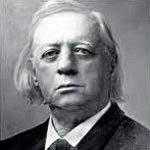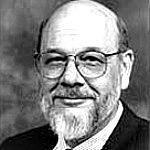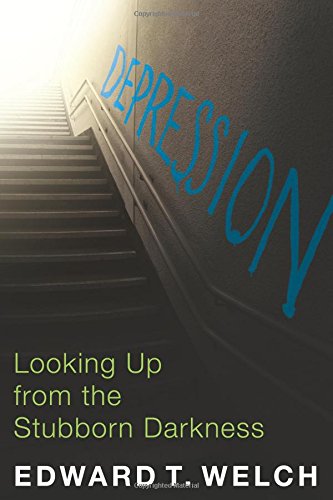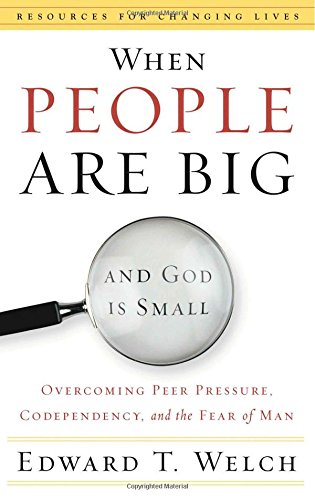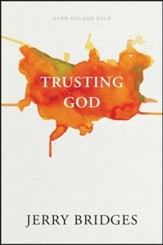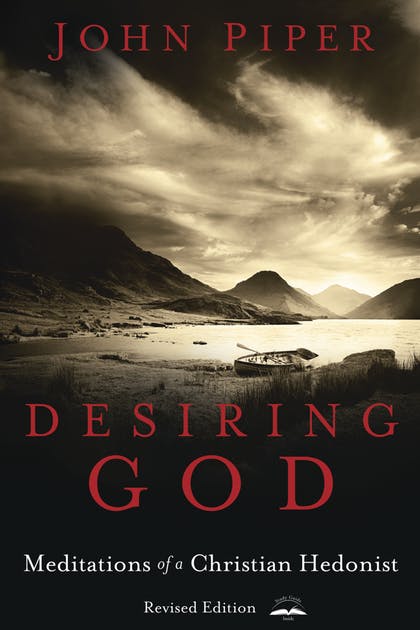Quotes about Anxiety
Every tomorrow has two handles. We can take hold of it with the handle of anxiety or the handle of faith.
Many over-scrupulous, rigid and obsessional perfectionists may worry intermittently for years concerning some relative trivialities, which have done no real harm to anyone, except the worrier. Here surely the emphasis should be on God’s wonderful and complete forgiveness available in Christ, and Philippians 3:13 is more appropriate.
Derick Bingham Encouragement – Oxygen for the Soul, Christian Focus, 1997, p. 76. Used by Permission.
The great antidote to anxiety is to come to God in prayer. We are to pray about everything. Nothing is too big for Him to handle, and nothing is too small to escape His attention.
The Practice of Godliness, NavPress, 1996, p. 159. Used by permission of NavPress – www.navpress.com. All rights reserved. Get this book!
When you live to please yourself, circumstances that God designs to teach you to trust and obey Him instead become temptations for you to fear and worry.
Self-Confrontation Manual, Lesson 19, Page 4, Used by Permission of the Biblical Counseling Foundation.
Our yesterdays present irreparable things to us; it is true that we have lost opportunities which will never return, but God can transform this destructive anxiety into a constructive thoughtfulness for the future. Let the past sleep, but let it sleep on the bosom of Christ. Leave the Irreparable Past in His hands, and step out into the Irresistible Future with Him.
We imagine that a little anxiety and worry are an indication of how really wise we are; it is much more an indication of how really wicked we are. Fretting springs from a determination to get our own way. Our Lord never worried and He was never anxious, because He was not “out” to realize His own ideas; He was “out” to realize God’s ideas. Fretting is wicked if you are a child of God. Have you been bolstering up that stupid soul of yours with the idea that your circumstances are too much for God? Put all “supposing” on one side and dwell in the shadow of the Almighty. Deliberately tell God that you will not fret about that thing. All our fret and worry is caused by calculating without God.
Anxiety is the poison of human life; the parent of many sins and of more miseries. In a world where everything is doubtful, and where we may be disappointed, and be blessed in disappointment, why this restless stir and commotion of mind? Can it alter the cause, or unravel the mystery of human events?
Future worry is overwhelming. There’s a reason. We don’t have grace today for tomorrow. One of Satan’s simplest tricks and most effective devices is to draw our attention to things we can do nothing about. There’s nothing worse than a crisis that can’t be fixed. If our hours are spent with thoughts of tomorrow’s problems, which are not accessible today and which we know we cannot touch with today’s resources, we are doomed to worry. And worry wears us out… [Yet] our calling is today. It’s not that we don’t think of tomorrow, but it must consistently be filed under “future grace.” The tide of confidence in God’s sufficiency must wash out worry. In fact, it’s a command. “Do not be anxious for tomorrow.” To go there is to disobey a directive from the One who holds every moment in His hand.
The Sufficiency of Daily Grace, Christian Communicators Worldwide, www.CCWtoday.org. Used by Permission.
Worry is the antithesis of trust. You simply cannot do both. They are mutually exclusive.
Discipline – The Glad Surrender, Revell, 1982, p. 106. Get this book!
It is only when we want to take our lives out of the Father’s hands and have them under our own control that we find ourselves gripped with anxiety. The secret of freedom from anxiety is freedom from ourselves and abandonment of our own plans. But that spirit emerges in our lives only when our minds are filled with the knowledge that our Father can be trusted implicitly to supply everything we need.
“Concern” means to “have an interest in, give attention to, be engaged by a situation, as a matter of consideration or responsibility.” “Worry” is a disquieted uneasiness of mind, an anxious apprehension concerning an impending or anticipated situation; fretting about a foreboding misfortune or failure (“worried” and “anxious” are used as synonyms)… “Concern” becomes “worry” when we fail to relate the situation that confronts us to the source of sufficiency in God.
To worry is to assume a responsibility that is not necessarily ours to assume; failing to recognize that God is bigger than any problem we might have, and loves us enough to seek our highest good in the midst of every situation.
Worry is a form of humanistic self-orientation that thinks, “It’s up to me to take care of this situation,” and is thus a form of practical atheism, acting as if there is no God to deal with the situation, or that God doesn’t know or care about the situation.
Worry, like a rocking chair, will give you something to do, but it won’t get you anywhere.
Think about it this way: Christians who worry believe God can redeem them, break the shackles of Satan, take them from hell to heaven, put them into His kingdom, and give them eternal life, but just don’t think He can get them through the next couple of days. That is pretty ridiculous, isn’t it? That we can believe God for the greater gift and then stumble and not believe Him for the lesser one reveals an embarrassing lack of faith.
A Worried Christian: This article originally appeared (http://www.gty.org/resources/articles/A112/a-worried-christian) at www.gty.org. © 1969-2008. Grace to You. All rights reserved. Used by permission.
Worry strikes a blow at the person and character of God.
A Worried Christian: This article originally appeared (http://www.gty.org/resources/articles/A112/a-worried-christian) at www.gty.org. © 1969-2008. Grace to You. All rights reserved. Used by permission.
Worry is needless because of God’s bounty, senseless because of God’s promise, useless because of its impotence to do anything productive, and faithless because it is characteristic of unbelievers.
A Worried Christian: This article originally appeared (http://www.gty.org/resources/articles/A112/a-worried-christian) at www.gty.org. © 1969-2008. Grace to You. All rights reserved. Used by permission.
Don’t worry about the future. Even though it will have its share of problems, they have a way of working themselves out at the time. Just deal with them as they come, for there’s no way to solve them in advance. Providing for tomorrow is good, but worrying about tomorrow is sin because God is the God of tomorrow just like He is the God of today [Mt. 6:24].
A Worried Christian: This article originally appeared (http://www.gty.org/resources/articles/A112/a-worried-christian) at www.gty.org. © 1969-2008. Grace to You. All rights reserved. Used by permission.
God gives us His grace in the hour we need it. If we worry about the future now, we double our pain without having the grace to deal with it.
A Worried Christian: This article originally appeared (http://www.gty.org/resources/articles/A112/a-worried-christian) at www.gty.org. © 1969-2008. Grace to You. All rights reserved. Used by permission.
Don’t push yourself into the future and forfeit the day’s joy over an anticipated tomorrow that may never happen.
A Worried Christian: This article originally appeared (http://www.gty.org/resources/articles/A112/a-worried-christian) at www.gty.org. © 1969-2008. Grace to You. All rights reserved. Used by permission.
We are living in an anxiety-ridden culture. And the amazing thing about it is this is the most indulged, the most lavish society ever. This is the most comfortable society ever. This is the society that has the most, but it seems to be the most angst-ridden, anxious, stressed out and panicked culture ever. We have a massive medical world that exists to do nothing but help people with stress. No worry goes unnamed. No worry goes undefined. No worry goes uncataloged. No worry goes undiagnosed. And no worry goes unmedicated. They just go unrelieved. People live with anxiety. They live with worry. They live with stress. But it’s so common that we don’t even talk about eliminating it. The term is “to manage it.” You take a course, go to a seminar, listen to a lecture, buy a tape on stress management… Then Jesus comes along and says, “I’m not going to teach you how to manage your stress, I’ll eliminate it.”
This article originally appeared (https://www.gty.org/library/sermons-library/42-172/anxietyfree-living-part-1) at www.gty.org. © 1969-2008. Grace to You. All rights reserved. Used by permission.
Worry, by nature, is the product of a lack of faith and trust in God.
John MacArthur Grace to You, Newsletter, March 2009, © 1969-2008. www.gty.org, Grace to You. All rights reserved. Used by permission.
Worry is the sin of distrusting the promise and providence of God, and yet it is a sin that Christians commit perhaps more frequently than any other.
Worry is not a trivial sin, because it strikes a blow both at God’s love and at God’s integrity. Worry declares our heavenly Father to be untrustworthy in His Word and His promises. To avow belief in the inerrancy of Scripture and in the next moment to express worry is to speak out of both sides of our mouths. Worry shows that we are mastered by our circumstances and by our own finite perspectives and understanding rather than by God’s Word. Worry is therefore not only debilitating and destructive but maligns and impugns God.
What does your anxiety do? It does not empty tomorrow of its sorrow, but it does empty today of its strength. It does not make you escape the evil; it makes you unfit to cope with it when it comes. God gives us the power to bear all the sorrow of His making, but He does not guarantee to give us strength to bear the burdens of our own making such as worry induces.
The beginning of anxiety is the end of faith, and the beginning of true faith is the end of anxiety.
When I view a particular possibility as threatening, it imperils some value important to me. That is what I mean by threat. But suppose this threat is directed not to some modest finite value I love but to the very center of my value system, that focal value by which all my other values are viewed as valuable. Suppose my god is sex or my own physical health or the Democratic Party. If I experience one of these as under genuine threat, then I feel myself shake to the depths. In this way, idolatry intensifies anxiety.
Two Worlds: Notes on the Death of Modernity in America & Russia, IVP Press, 1992, p. 97.
The best antidote for anxiety is frequent meditation upon God’s goodness, power and sufficiency… Nothing is too big and nothing is too little to spread before and cast upon the Lord.
The command is, Cast your anxiety on God. The promise is, God cares for you [1 Pet. 5:7].
Sermon, Anxieties: To be Cast not Carried, June 13, 1993, Used by Permission from DesiringGod.org.
As unbelief gets the upper hand in our hearts, one of the results is anxiety… Much anxiety, Jesus says, comes from little faith.
Sermon, Battling the Unbelief of Anxiety, September 25, 1988, Used by Permission from DesiringGod.org.
We battle the unbelief of anxiety with the promises of God. When I am anxious about some risky new venture or meeting, I battle unbelief with the promise: “Fear not for I am with you, be not dismayed for I am your God; I will help you, I will strengthen you, I will uphold you with my victorious right hand” (Isaiah 41:10). When I am anxious about my ministry being useless and empty, I fight unbelief with the promise, “So shall my word that goes forth from my mouth; it will not come back to me empty but accomplish that which I purpose, and prosper in the thing for which I sent it” (Isaiah 55:11).
When I am anxious about being too weak to do my work, I battle unbelief with the promise of Christ, “My grace is sufficient for you, my power is made perfect in weakness” (2 Corinthians 12:9), and “As your days so shall your strength be” (Deuteronomy 33:25). When I am anxious about decisions I have to make about the future, I battle unbelief with the promise, “I will instruct you and teach you the way you should go; I will counsel you with my eye upon you” (Psalm 32:8). When I am anxious about facing opponents, I battle unbelief with the promise, “If God is for us who can be against us!” (Romans 8:31). When I am anxious about being sick, I battle unbelief with the promise that “tribulation works patience, and patience approvedness, and approvedness hope, and hope does not make us ashamed” (Romans 5:3–5). When I am anxious about getting old, I battle unbelief with the promise, “Even to your old age I am he, and to gray hairs I will carry you. I have made, and I will bear; I will carry and will save” (Isaiah 46:4). When I am anxious about dying, I battle unbelief with the promise that “none of us lives to himself and none of us dies to himself; if we live we live to the Lord and if we die we die to the Lord. So whether we live or die we are the Lord’s. For to this end Christ died and rose again: that he might be Lord both of the dead and the living” (Romans 14:8–9). When I am anxious that I may make shipwreck of faith and fall away from God, I battle unbelief with the promise, “He who began a good work in you will complete it unto the day of Christ” (Philippians 1:6). “He who calls you is faithful. He will do it” (1 Thessalonians 5:23). “He is able for all time to save those who draw near to God through him, since he always lives to make intercession for them” (Hebrews 7:25).
Sermon, Battling the Unbelief of Anxiety, September 25, 1988, Used by Permission from DesiringGod.org.
Anxieties feel endless and infinite – but they’re finite and specific.
Worriers act as if they might be able to control the uncontrollable. Central to worry is the illusion that we can control things… The illusion of control lurks inside your anxiety. Anxiety and control are two sides of one coin. When we can’t control something, we worry about it.
Worry – Pursuing a Better Path to Peace, P&R Publishing, 2004, p. 12. Used by Permission.
All the things we worry about are what we want but could lose. That’s why we worry. The best thing you could ever want you will never lose, and you can always give it away.
Worry – Pursuing a Better Path to Peace, P&R Publishing, 2004, p. 26. Used by Permission.
Here game plan when you start to worry and obsess:
1. Name the pressures. You always worry about something. What things tend to hook you?… Anxieties feel endless and infinite – but they’re finite and specific.
2. Identify how you express anxiety. How does anxiety show up in your life?
3. Ask yourself, Why am I anxious? Worry always has its inner logic… What do I want, need, crave, expect, demand, and lust after? Or what do I fear either losing or never getting? Identify the specific lust of the flesh. Anxious people “eagerly seek” the gifts more than the Giver. They bank treasure in the wrong place. What is preoccupying me, so that I pursue it with all my heart?
4. Which promise of Jesus [from the Bible] speaks to you most? Grab one promise and work with it.
5. Go to your Father. Talk to Him. Your Father cares about the things you worry about. Your Father knows what you need. Cast your cares upon Him, because He cares for you.
6. Give. Do and say something constructive. Care for someone else. Give to meet human need. In the darkest hole, when life is toughest, there’s always some way to give yourself away.
Excerpted from: Worry – Pursuing a Better Path to Peace, P&R Publishing, 2004, p. 27-30. Used by Permission.
Both anxiety and worry spring from natural and legitimate concerns that are part of life in this world. But legitimate concerns are handled wrongly when they do one or more of the following:
1. Become dominating concerns in our life and lead to fear.
2. Destroy our perspective on life and cause us to forget that God exists and cares.
3. Move us to drift into an attitude of constant worry and concern over a future we cannot control.
Godly concern is caring about important things for the right reasons. It is also accompanied by a trust in God’s ultimate control and faithfulness. This kind of concern helps you be responsible to God and does not send you into a confused status. It will involve a focus on the responsibilities for today, eternal goals and others… For your concern to be the right kind of concern you must be focused on what is true and helpful from God’s perspective (see 1 Cor. 7:32-33; 2 Cor. 11:28; Phil. 2:20)… [However], ungodly concern (anxiety) goes beyond reasonable concern and involves worry about mere possibilities. When we are anxious, we are not focused on God and what is true and helpful. When we are anxious, we are often concerned that something we want to happen may not happen. Therefore, we are focused on difficulties of the future, temporal matters, and self (see Mt. 6:31-32).
So there is a sinful anxiety that keeps God out of the equation and focuses on self, but there is a godly anxiety that demonstrates God’s heart as He grieves in a particular situation in care and concern for others.
Of all that we worry about, statistics say: 85% of those things will never happen. 30% regard things in the past that we can’t change. 12% pertains to criticism by others, which is mostly untrue. 10% is health related, which gets worse with stress. And only 8% deals with real problems that we will face. I believe all of us can say, “I’ve had a lot of trouble and most of it never happened!”
Worry results from over-prioritizing our own needs and disbelieving the care and promises of God.
Worry accomplishes nothing good for our health and God’s glory. Worry often accompanies events that never affect us. Worry is often associated with the “what if” situations in the future. Beloved, trust God’s goodness and invest your energies in that which is more productive. Tomorrow will care for itself, but each day is filled with enough temptations and spiritual tests and opportunities to serve others and pray to keep us busy. Be thankful for the day that God has made, deal with the daily matters God has placed before you, find true peace that transcends the real pain that comes from living in a fallen world and then live each day, one day at a time.
Like the daily manna that God provided the Israelites in the desert, He provides the fresh grace that is sufficient for each day’s burdens (2 Cor. 12:9). Entrust the unpredictable future to the predictable grace of Him who promises “your strength will equal your days” (Dt. 33:25-NIV). “[Cast] all your anxiety on Him, because He cares for you (1 Pet. 5:7). Then trust Him for all things. For all things and your life lie in the palm of His wise and loving hands (Pro. 3:5-8). And if His firm grip is upon you, how can you be gripped with anxiety?
The more we begin to serve God and trust God and seek God, the less we will worry. Worry is evidence that we desire to serve and trust and seek ourselves. When we find in God our total sufficiency, we will glorify Him in the process and receive the promised peace and contentment that surpasses all understanding. Psalm 34:4, “I sought the LORD, and He answered me, and delivered me from all my fears.” While Mary was clinging to the Lord, Jesus said to that stressed-out sister: “Martha, Martha, you are worried and bothered about so many things; but only one thing is necessary, for Mary has chosen the good part, which shall not be taken away from her” (Lk. 10:41-42). May we realize that the cure for worry is God Himself and may we always be found seeking Him!
Worry is unproductive to solve our problems, unworthy of God’s faithful reputation, and therefore, unnecessary for the children of God.
Sermon, Why Do We Worry? Luke 12:22-34, September 8, 2019.|Sermon, Why Do We Worry? Luke 12:22-34, September 8, 2019.
No wonder Jesus concluded in Luke 12:28 with the words, “You men of little faith.” How can we observe how God provides for His lesser creation and then believe He will not provide for His children? How can we trust God for the eternal salvation of our souls and then believe He will fail to provide for our basic necessities (Rom. 8:32)? How can we believe God has a wonderful plan for our lives, but He can’t keep us alive? Where is our faith?
Sermon, Why Do We Worry? Luke 12:22-34, September 8, 2019.|Sermon, Why Do We Worry? Luke 12:22-34, September 8, 2019.
Are you seeking first God’s kingdom (Luke 12:31)? Such an attitude reveals a heart that is set on God. So, the more we begin to serve God and trust God and praise God and seek God, the less we will worry (Luke 12:22, 29, 32). Worry is evidence that we desire to serve and trust and seek ourselves. But when we find in God our total sufficiency, we will glorify Him in the process and receive the promised peace and contentment that surpasses all understanding. When our treasure is in heaven, our hearts will follow. When our hearts are in heaven we will not worry about the things of this world.
(The Sermon on the Mount, p. 93).|Sermon, Why Do We Worry? Luke 12:22-34, September 8, 2019.
The secular would only teaches us how to manage worry through therapy and medication. Jesus promises us that through Him we can eliminate it.
Augustine rightly said, “Fear is the response of the human heart when its one thing is threatened.” God has blessed all of our lives with many good things. We are to enjoy them and acknowledge God in gratitude, but we dare not make these good things our “one thing”, for in doing so, they become idols in our hearts. Like Augustine said, when we foolishly make these good things our one thing, fear will result when they are threatened. As a matter of fact, fear, worry, and anxiety are a good indication that we have created idols and feel in danger of losing them. Therefore, Christ’s goal is to pull our heart away from these false gods and place our heart on the true God. Do you remember how Jesus praised Mary over Martha? Why? Because she chose God as her one thing. “But the Lord answered and said to her, ‘Martha, Martha, you are worried and bothered about so many things [and they were good things!]; but only one thing is necessary, for Mary has chosen the good part, which shall not be taken away from her‘” (Lk. 10:41-42). So when God is our one thing, we never need to fear because our one thing is never threatened nor will He ever be removed from our presence.
We know worry doesn’t change our circumstances. All it accomplishes is disrupted sleep, headaches, difficulty concentrating, nausea, muscle tension, exhaustion, irritability, ulcers and high blood pressure. But most of all, worry expresses no confidence in the sovereignty and promises of God.
We put off all worry (Philippians 4:6) by bringing everything to God in prayer with a heart of thanksgiving. Could Paul have made his point any clearer? He uses three terms for the same activity in this verse: “Prayer,” “Supplication,” and “Requests made known to God.” Here is the solution to the sin we all struggle with: Be anxious for nothing, prayer about everything. Or put another way, instead of taking your troubling matters in your own impotent hands, place your matters in God’s omnipotent hands. Worry is a preoccupation with yourself. Prayer is a preoccupation with God. Which preoccupation will bring you the greatest joy (Philippians 4:4)? Which one will bring you the greatest peace (Philippians 4:7)?
We worry so much that we worry about what we’ll worry about when we get to heaven.
Anxiety does not empty tomorrow of its sorrows, but only empties today of its strength.
There is no need for two to care, for God to care and the creature too.
I don’t worry over the future, for I know what Jesus said; so today I’ll walk beside Him, for He knows what is ahead.
Many things about tomorrow I don’t seem to understand but I know Who holds tomorrow and I know He holds my hand.
All worry is about tomorrow, whether about food or clothing or anything else; but all worry is experienced today. Whenever we are anxious, we are upset in the present time about some event which may happen in the future. However, these fears of ours about tomorrow, which we feel so acutely today, may not be fulfilled. The popular advice, "Don’t worry, it may never happen," is doubtless unsympathetic, but perfectly true. People worry that they may not pass an exam, or find a job, or get married, or retain their health, or succeed in some enterprise. But it is all fantasy. “Fears may be liars;” they often are. Most worries…never materialize.
A Christian’s freedom from anxiety is not due to some guaranteed freedom from trouble, but to the folly of worry…and especially to the confidence that God is our Father, that even permitted suffering is within the orbit of His care.
Oh, how great peace and quietness would he possess who should cut off all vain anxiety and place all his confidence in God.
True peace does not demand a denial of our emotions and concerns. What is the difference between godly concern and sinful anxiety? Actually the same Greek word is used for both, and it is only the context that reveals the difference. The difference can be seen in these mathematical formulas: Concern + unbelief = anxiety; Concern + faith = a biblical virtue (1 Corinthians 7:32, 33, 12:25; 2 Corinthians 11:28).
A Journey to Victorious Praying, Moody Publishers, 2003, p. 180.
Get this book!
Worry is faith in the negative; trust in the unpleasant, assurance of disaster and belief in defeat. Worry is wasting today’s time to clutter up tomorrow’s opportunities with yesterday’s troubles.
Worry is a thin stream of fear that trickles through the mind, which, if encouraged, will cut a channel so wide that all other thoughts will be drained out.
Worry is a cycle of inefficient thought, centered on a fear.
Anxious and fearful people can easily slip into taking Scripture as a pill. Take one passage twice a day for two weeks and your symptoms will be gone. When the pill doesn’t work we have two choices. We search for another treatment, or we confess that we are using Scripture as a self-help book for symptom relief, in which case it is time to get back to basics. If you choose to get back to biblical basics, Peter’s exhortation to humble ourselves is a great place to start [1 Pet. 5:6-7].
